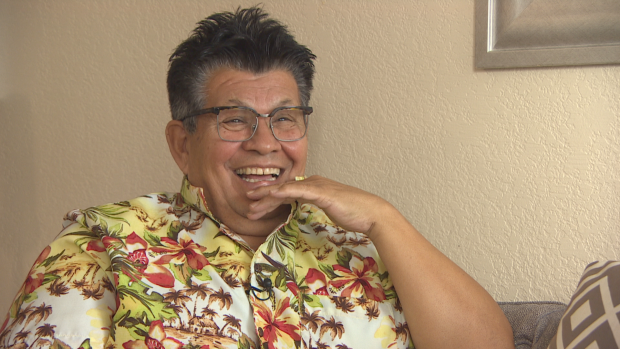'I walk proud today': At 67, a Sask. Métis man is going back to school to learn about his culture
For most of his young life, Alexander Pelletier felt ashamed of who he was, as a Métis and two-spirit man.
But now, at the age of 67, he's not living in shame any more.
In January, he's starting classes at the University of Regina to learn about his Métis history and culture, and share this rich knowledge and culture with others.
"I am proud. I walk proud today," he said. "I never thought that day would come where I'm proud."
This will be Pelletier's first time taking university classes. In fact, he never even went to high school.
Pelletier said growing up, his family never taught their language to him — Michif, the endangered language that's largely a mix of Cree and French.
"We never knew much about Métis history and our people," he said, adding it was astonishing to him that he still somehow absorbed the language from listening to his relatives speak it to each other.
"I'm amazed I can speak, probably, 75 or 80 per cent of my language," he said, adding the knowledge seemed to come to him almost overnight.
"One day I woke up, [and] I could speak Michif!"

But he also faced struggle accepting his two-spirit identity. He was raised Catholic and his parents never spoke about the fact he was gay.
"All my life, I was made to believe and be who I wasn't," he said.
He looked for answers in bars and in alcohol, but time and experience freed him from the constraints of what he felt he should be.
As I got older, I promised myself I would have a voice and speak. - Alexander Pelletier
He doesn't regret the past, because it made him who he is today, Pelletier said.
"As I got older, I promised myself I would have a voice and speak," he said.
"I'd be damned if I let anybody — society, government or anybody — dictate who I'm supposed to be any more. I know who I am."
Now, he said he plans to study Indigenous and Métis history at the University of Regina and the Gabriel Dumont Institute, partly to share this knowledge with his family's grandchildren.
"I don't ever want them to go through what I went through as a child. They need to be proud of their cultures, look at the history and where they came from," he said.
He also wants to improve his public speaking, so he can talk to young people who may be isolated and struggling with their own sexual identities.
"I've got so much more to do. I'm going to be here until I'm 120, so I've got a lot more to teach people," he said with a laugh.
With files from ICI Radio-Canada.

